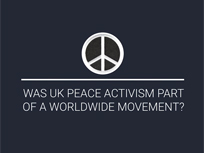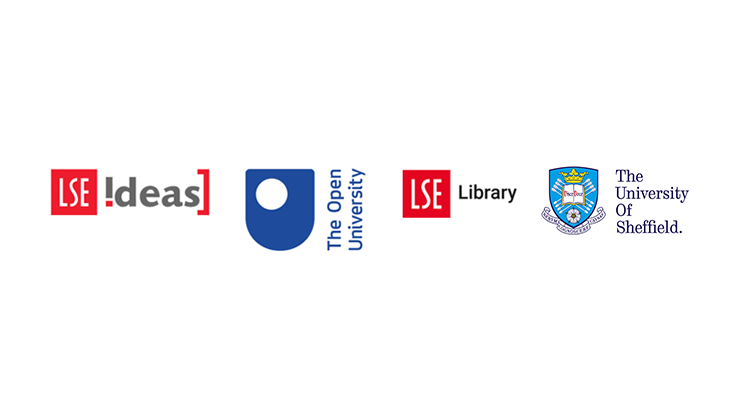While the peace movement in the UK was incredibly active in the 1980s, it was just part of a much broader, transnational peace movement during this period. Countries like West Germany, Italy, the Netherlands and Belgium – which, like the UK, had agreed to deploy Cruise or Pershing missiles on their territory – saw similar waves of peace activism. In the United States, meanwhile, the Nuclear Freeze movement was supported by millions of Americans.
Importantly, peace groups in different countries did not act in isolation, but rather shared ideas, publications, and strategies. In 1980, for example, Manchester City Council declared the city a nuclear-free zone, a move that prompted hundreds of other cities across Europe to issue similar declarations. Peace groups also coordinated action across borders, for example by organising international marches and peace walks across several countries. The famed Hyde Park rally organised on 22 October 1983 was just one of many demonstrations organised that same day; a similar event attracted 300,000 participants in Bonn that very day.
 Was UK peace activism part of a worldwide movement?
Was UK peace activism part of a worldwide movement?
Was UK peace activism part of a worldwide movement?
Was UK peace activism part of a worldwide movement?
One of the challenges for peace groups in the West was how to engage in dialogue with their counterparts on the other side of the Iron Curtain. Some groups, including the CND, sought to reach out to ‘official’ peace organisations in the Eastern bloc, which in practice were controlled by the ruling Communist Party of each state. Another approach, pursued notably by END but criticised by the Communist governments of Eastern Europe, was to engage with political dissidents who opposed the regimes in the Soviet bloc. Despite these differences, it was agreed that peace and the prevention of a nuclear war required dialogue not just within NATO countries but crucially with individuals and groups in the Warsaw Pact.
Find below a selection of archival materials relating to UK peace activism as part of a worldwide movement:
CND and dissident peace groups in socialist countries, June 1983
This paper authored by George Hutchinson for discussion by the CND Council raises the question of whether the CND should be dealing only with the 'official' peace groups in Warsaw Pact countries (which were controlled by the Communist government), or whether the CND should be engaging more extensively with 'unofficial' peace groups run by dissidents. This debate continued within the UK peace movement throughout the 1980s.
Letter from Yuri Zhokov to members of the CND, 1 October 1983
In this letter, Zhokov invites the CND to cooperate with the Soviet Peace Committee to prevent the deployment of Cruise and Pershing missiles in Western Europe. He also draws attention to a peace rally held in Moscow, likening this to the demonstrations being held in Western Europe in opposition to the Euromissiles.
This online resource is a collaboration between LSE IDEAS and The Open University. It has received generous support from the LSE Knowledge Exchange and Impact Fund and invaluable cooperation with LSE Library.
Please complete this short survey to let us know what you think of this online resource.
